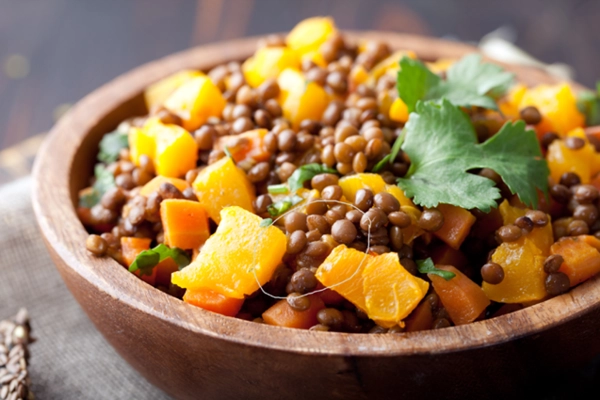A pregnancy nutrition plan you’ll actually want to eat


While many have said that when you’re pregnant, you’re eating for two, that is a bit misleading. Eating healthy should be a top priority while you are pregnant. You may want to be eating a little more than usual, but a balanced diet is what is most important for you and your baby.
While you’re pregnant, it’s crucial that you eat a wide variety of foods to make sure your baby gets the widest array of nutrients possible. If you want to know what your baby is looking for during these nine months, take a look at the following five must-have nutrients and where you can find them.
Protein
Protein is essential while pregnant. You’ll need an additional ten grams of protein per day, so be looking for ways to incorporate this much-needed nutrient into your diet.
Protein-rich foods: Beef, soy, dairy products, chicken, fish, pork, eggs, dried beans and lentils and peanut butter.
Folate
Folate may help to prevent neural-tube defects that occur early in pregnancy. It's recommended that women get 400 micrograms (mcg) a day before conceiving; however, it's still a vital mineral through your first trimester, when daily needs jump to 600 mcg.
Folate-rich foods: Orange juice, spinach, fortified breakfast cereal, lentils, fortified pasta and bread, rice, oatmeal, broccoli and strawberries.
Calcium
Calcium gives both you and your baby the necessary nourishment for strong and healthy bones and teeth.
Calcium-rich foods: Milk, yogurt, cheese, tofu, calcium-fortified orange juice, fortified soy milk, broccoli, almonds and okra.
Fiber
Fiber is the best defense against constipation and hemorrhoids, both of which commonly plague pregnant mothers. Fiber-rich foods also have the benefit keep you feeling full and satisfied.
Fiber-rich foods: Whole-grain cereals, breads, pastas (look for types that pack at least three grams per serving), nuts, seeds, fruits (such as apples and pears with skin, berries, oranges) and vegetables (including potatoes with skin, broccoli, carrots and tomatoes).
Fat
Surprised to find fat on the list? Healthy fat is necessary for the proper development of your baby's brain and central nervous system. Fat is also a source for energy and vitamin transportation throughout your body.
Sources of healthy fat: Nuts, avocados, salmon, olive oil, safflower oil, sunflower oil and canola oil.
Don’t forget to drink water
Staying hydrated is more important than ever now, due to your body's increased volume of blood. Although this means you’ll be taking more trips to the bathroom, it’s well worth the trouble. Drinking water helps prevent constipation and fatigue. A goal of eight glasses a day is still right, but make sure you hit it. Keep in mind that low-sodium broths and water-rich vegetables and fruits are also great sources of hydration.
Foods to avoid
Experts at the Family Birth Center have put together a handy list of unsafe foods all moms-to-be should avoid. Print it off and stick it on the fridge as a reminder.